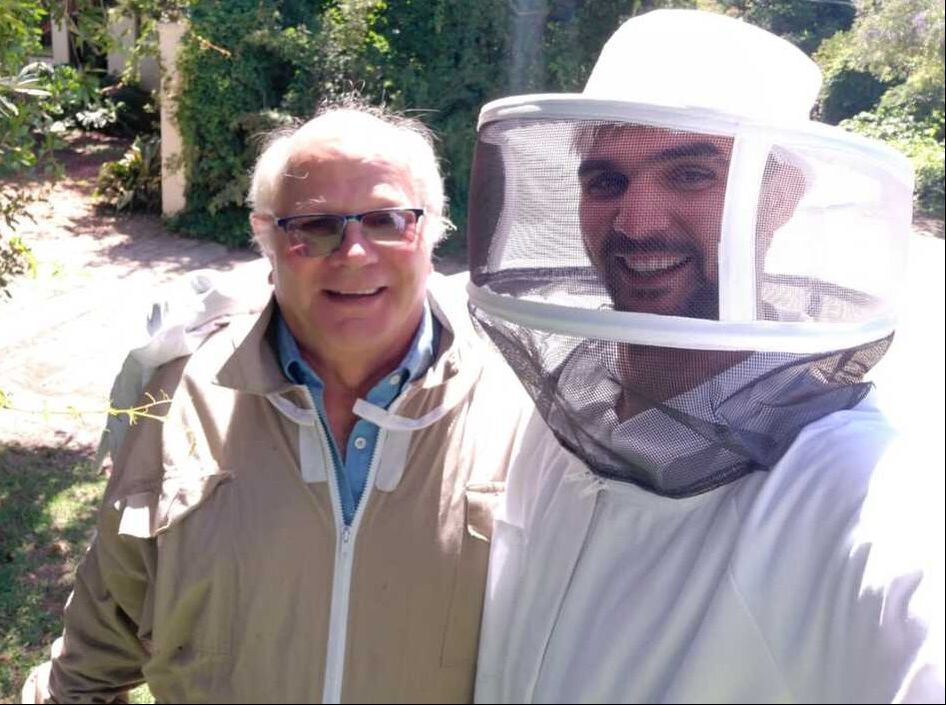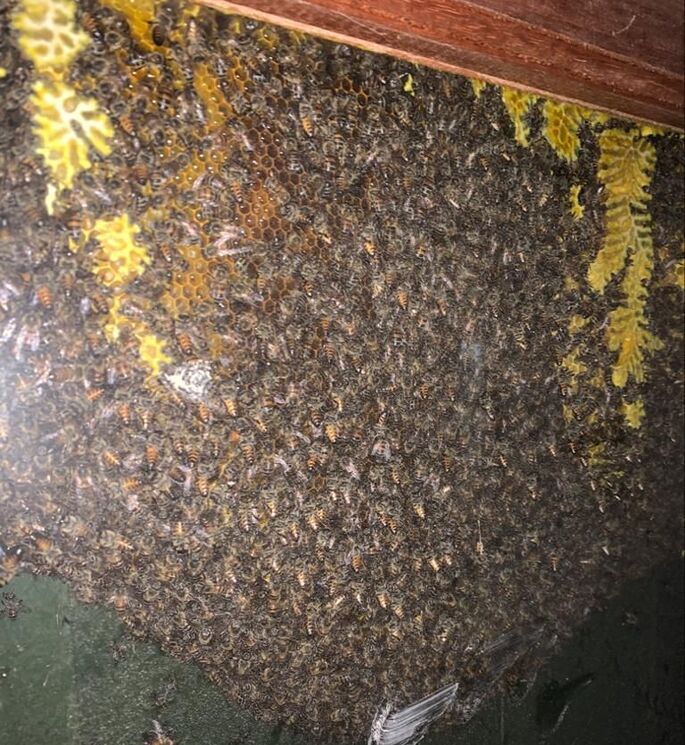|
World bee day is a celebration honouring our bee-utiful buzzing friends, it aims to highlight the importance of bees and beekeeping. In in the spirit of today’s theme we decided to interview our Chairman, John Moodie about bees. John has been beekeeping for the past 50+ years across South Africa and has held many prestigious positions; edited bee journals and been involved in bee related events. How many bee species do we find in South Africa? There are 24 races (Race is below subspecies) of honeybees globally – Africa has ten of these. For our purposes, South Africa has two races Capensis and Scutellata. Capensis is a unique honeybee in the fynbos area that can clone itself – called thelytokous parthenogenesis. For this reason, there is a ban on moving bees in South Africa from one zone to another. Research is ongoing on the Cape Honeybee and recently a specific gene which enables this behavior was identified. What do you believe will happen with the decline of bee populations? I am not sure if there is a decline in the Southern Hemisphere. If so, it is minimal. The issue is that honeybees are becoming more and more important as pollinators of crops that modern man enjoys eating. Onions, fruits, vegetables, berries, nuts all require cross pollination, and this generally means the service of managed honeybees that are moved into crops to ensure seed set. So, the ‘shortage’ may be simply a huge demand for honeybees to cover the increased number of crops needing honeybee pollination. In addition, these crops are often sprayed with pesticides and fungicides which have a detrimental effect on honeybees as well as the targeted pests. Beekeepers, as a result, may have to keep bees during off season by feeding them in order to have them available for pollination when needed. This will, of course, result in a serious increase in pollination charges levied to growers. There is a lot in the press about the threat to bees and the implications for agriculture and nature, in the South African context, are these exaggerated or very real threats? The threats are very real. The advent of additional bee diseases in Southern Africa have presented severe threats to our bees. Varroa Mite, AFB and the Capensis problem in the northern provinces are challenges which remain serious threats to our bees. The shortage of bee forage to support bees throughout the year is exacerbated by the severe droughts we have been experiencing. Bees are selective forages and not all flower types provide nectar suitable for nectar gathering, mountain fynbos may look beautiful but cannot support many bee colonies - unlike Australia with its generous supply of eucalyptus. The threats are exacerbated by increased demand for pollination and increased usage of pesticide on crops. What should the bee industry and agriculture be doing to try and reduce these threats? Easy to say but almost impossible to implement. Increase bee friendly forage, use less herbicide and pesticide on crops, reduce pollination demands, remove bee pests like wasps, baboons and honey badgers, stop bee hive vandalism and theft, and make sure there is sufficient rain to support the forage we have! Better regulation and training of beekeepers would help but that is also difficult to implement in an acceptable format to a group of farmers who seem to have decided to stay under the radar – sometimes for their survival – other times just to be difficult. What can the public do to help protect honeybees? Bees depend on a clean healthy environment with enough bee forage to support them. The public can do plenty to enhance this. Motives of gain and profit with modern industry and development trends, as well as modern agriculture’s need to compete and survive, makes it unlikely that the honeybees will receive the attention they deserve. Of course, public awareness of the harm that we are doing to our environment is evident everywhere. It is just difficult to persuade the public that this harmful trend needs to change, despite clear evidence the recent global shutdowns have shown. Hugging bees is not going to help. Awareness of the problems facing bees and beekeepers will, however, make a difference. Buy local honey, stop the importation of fraudulent honey which floods the market, offer bee sites with bee forage to registered genuine beekeepers and only apply pesticide sprays in accordance with the label instructions. Any other thoughts on world bee day?
The World Bee Day was declared by the UN in 2017. The document was dated on the 20 May to remember the baptism of Anton Jansa, (born in Slovenia in 1734) who was the author of A Full guide to Beekeeping. In the book he notes: “Bees are a type of fly, hardworking, created by God to provide man with all needed honey and wax. Amongst all God's beings there are none so hard working and useful to man with so little attention needed for its keep as the bee.” It is fitting that we honor this little insect that works so hard for mankind and plays such a vital role in our food chain. A big thank you to John Moodie for sharing his vast knowledge on this important subject. Have a look at worldbee.org to learn more about this special day!
1 Comment
5/20/2020 12:25:08 am
Wonderful article about such influential little insects. Without them we simply cannot exist. Thanks for sharing
Reply
Your comment will be posted after it is approved.
Leave a Reply. |
AuthorGVB Conservancy Staff Archives
May 2024
Categories |


 RSS Feed
RSS Feed






